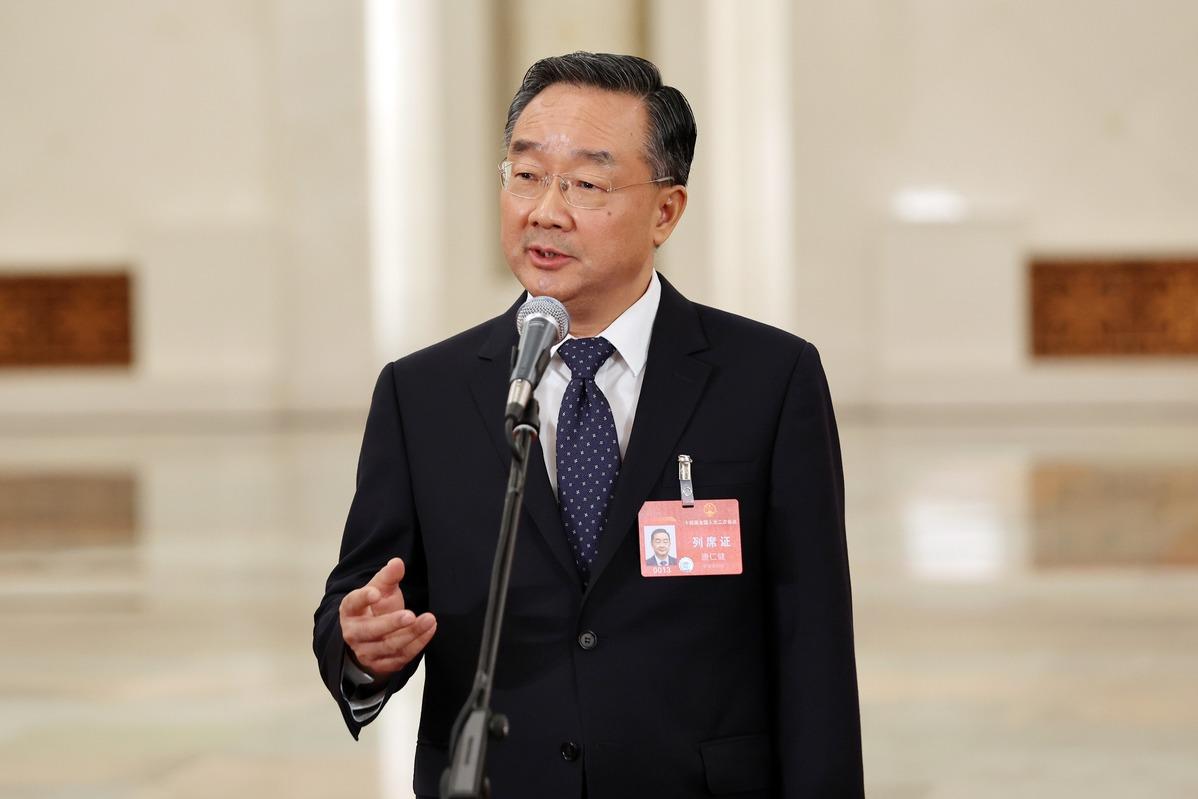 Chinese Minister of Agriculture and Rural Affairs Tang Renjian gives an interview after the opening meeting of the second session of the 14th National People's Congress at the Great Hall of the People in Beijing, on March 5, 2024. (WANG ZHUANGFEI / CHINA DAILY)
Chinese Minister of Agriculture and Rural Affairs Tang Renjian gives an interview after the opening meeting of the second session of the 14th National People's Congress at the Great Hall of the People in Beijing, on March 5, 2024. (WANG ZHUANGFEI / CHINA DAILY)
China's food yield data is genuine and reliable, Agriculture and Rural Affairs Minister Tang Renjian reassured the public on Tuesday, after authorities reported grain output reached a historical high last year despite a string of extreme weather events.
"I can unequivocally and responsibly tell everyone that our grain production data is true, reliable, and entirely trustworthy," he said during a ministers' passage interview at the Great Hall of the People in Beijing.
Figures from the National Bureau of Statistics showed that China's annual grain output reached 695.41 million metric tons last year — a year-on-year increase of about 1 percent.
READ MORE: Modern agriculture key part of Chinese modernization
The increase was achieved despite adverse weather conditions.
A cold spell last spring that affected some wheat-growing provinces was followed by record-shattering heat waves and flooding that inundated large swaths of rice fields in Northeast China.
Then, an earlier-than-usual cold wave swept across much of the country in November, prompting authorities to warn vegetable growers of possible damage.
As a result, the minister said the figures had prompted suspicions among some people who viewed modern agriculture through the lens of sustenance farming.
"I want to tell you that the countryside now is very different from what it used to be," he said, referring to the embrace of farming equipment, better irrigation facilities and other advances.
ALSO READ: Agricultural R&D key to food security
Tang said production of three major staple crops — rice, corn and wheat — has achieved basic mechanization, which greatly reduced labor and bolstered resilience against bad weather.
Tang said grain is a daily necessity, and any shortages would be reflected in food prices.
"Have you ever heard that anyone around us — relatives, friends, colleagues, or classmates — say they couldn't buy grain?" Tang said.
Citing data from the Food and Agriculture Organization, Tang said the international price of rice increased by 21 percent last year, compared with an increase of 1.7 percent in China.
"This is evidence that cannot be falsified," he said.


